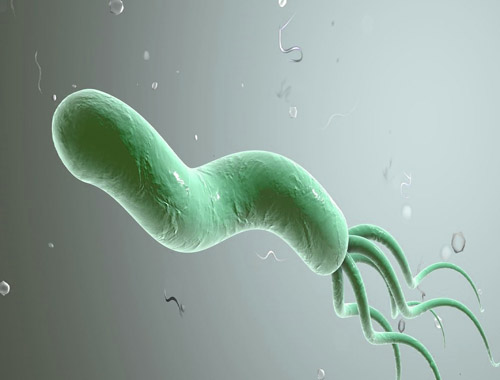Pylori

Published: 18 Jun 2025
ICD9: 041.86 ICD10: B96.81 ICD11: DA42
"Pylori" is short for *Helicobacter pylori* (often abbreviated as *H.
pylori*).
![]() H. pylori* is a type of bacteria that infects the stomach. It is a common cause of peptic ulcers and can also increase the risk of stomach cancer.
H. pylori* is a type of bacteria that infects the stomach. It is a common cause of peptic ulcers and can also increase the risk of stomach cancer.
Key things to know about *H. pylori*:
![]() Infection: It's usually acquired during childhood, often through contaminated food or water. It can also spread through direct contact with saliva or vomit.
Infection: It's usually acquired during childhood, often through contaminated food or water. It can also spread through direct contact with saliva or vomit.
![]() Symptoms: Many people with *H. pylori* have no symptoms. When symptoms are present, they can include:
Symptoms: Many people with *H. pylori* have no symptoms. When symptoms are present, they can include:![]()

![]() Gnawing or burning pain in the abdomen
Gnawing or burning pain in the abdomen![]()

![]() Nausea
Nausea![]()

![]() Loss of appetite
Loss of appetite![]()

![]() Frequent burping
Frequent burping![]()

![]() Bloating
Bloating![]()

![]() Unintentional weight loss
Unintentional weight loss
![]() Diagnosis: *H. pylori* can be diagnosed through various tests, including:
Diagnosis: *H. pylori* can be diagnosed through various tests, including:![]()

![]() Blood tests
Blood tests![]()

![]() Breath tests
Breath tests![]()

![]() Stool tests
Stool tests![]()

![]() Endoscopy with biopsy
Endoscopy with biopsy
![]() Treatment: *H. pylori* infection is usually treated with antibiotics and acid-reducing medications. Treatment typically lasts for 1-2 weeks. Successful treatment can eradicate the bacteria and relieve symptoms.
Treatment: *H. pylori* infection is usually treated with antibiotics and acid-reducing medications. Treatment typically lasts for 1-2 weeks. Successful treatment can eradicate the bacteria and relieve symptoms.
![]() Significance: Eradication of *H. pylori* is important to prevent complications like ulcers, bleeding, and stomach cancer.
Significance: Eradication of *H. pylori* is important to prevent complications like ulcers, bleeding, and stomach cancer.
If you suspect you might have an *H. pylori* infection, it is crucial to consult a doctor for diagnosis and treatment.